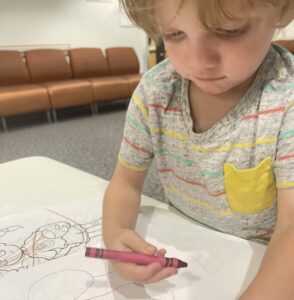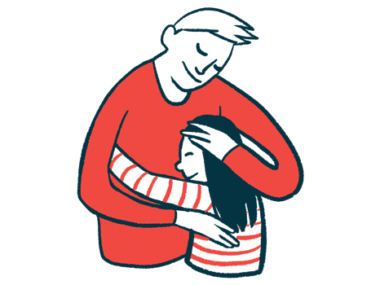Switching doctors always prompts new questions and a bit of anxiety
We've been extremely lucky to have the same doctors for the past three years
Written by |

Looking back at our son Finley’s Alagille syndrome diagnosis at just a couple months of age, I appreciate that we were fortunate to start this rare disease journey with most of the doctors that we still see today. We still see the same two gastrointestinal doctors every couple of months. We’ve been working with the same dietitian since the beginning. And until recently, we’d seen the same cardiologist.
I fully understand that there was no chance we’d have the same doctors forever. People move, change jobs, and retire. With Finley approaching his fourth birthday in January, we’re in uncharted territory as we prepare to see someone we don’t know.
In our rare disease journey with Finley, I’ve found that familiarity and trust with doctors is of paramount importance. We had the great fortune of making amazing connections with doctors during Finley’s stay at Seattle Children’s Hospital when we were going through the initial diagnosis phase. I remember my wife, Dani, being thrilled with the cardiologist as he calmly answered her questions and drew a picture of the heart so that we could follow along with his explanations. When he left the room, we both agreed that we needed to keep seeing him.
Thankfully for us, we’ve had annual cardiology appointments for the past two years. Finley has pulmonary valve stenosis, but as of our last visit, doctors had still classified it as mild. Seeing any specialist once a year is a win compared with the frequent appointments we had earlier in Finley’s life.
Even though we saw our cardiologist infrequently, we knew him and what to expect. He’d always draw us a picture of the heart and use it to explain what they’d seen in Finley’s most recent echocardiogram. He’d been with us from the start, but now he’s no longer working in our area, so we’ll have to start again with someone else.
In my brain, I know we’ll find another great doctor. But starting with someone new always prompts a bit of anxiety.
Our previous doctor told us that if Finley’s symptoms continue as they have been, we could switch the appointments to every other year. Will the new doctor agree? Also, will Finley need to see this doctor more frequently because the relationship is new? We’ll find out the answers to these and other questions at our first appointment in a couple of weeks.
This will be the first change we experience with Finley’s care team. I’m sure we’ll like the new doctor. But we’ll also miss our previous doctor’s hand-drawn explanations, the calm demeanor, and the honest delivery of facts. He provided us exactly what we needed as caregivers at each particular moment in time. I’m hopeful that we’ll find that again.
Note: Liver Disease News is strictly a news and information website about the disease. It does not provide medical advice, diagnosis, or treatment. This content is not intended to be a substitute for professional medical advice, diagnosis, or treatment. Always seek the advice of your physician or other qualified health provider with any questions you may have regarding a medical condition. Never disregard professional medical advice or delay in seeking it because of something you have read on this website. The opinions expressed in this column are not those of Liver Disease News or its parent company, Bionews, and are intended to spark discussion about issues pertaining to liver disease.





Leave a comment
Fill in the required fields to post. Your email address will not be published.